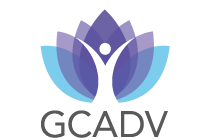Why is GCADV Engaging in Racial Justice Work?
- Domestic violence in Georgia cannot end without addressing the oppression of Women of Color (WOC).
- WOC have experienced overt and covert racism in their attempts to survive domestic violence and advocate for others within the domestic violence movement.
- In their positions at GCADV, WOC staff members experienced overt and covert racism.
- WOC experiencing domestic violence in Georgia are dying at twice the rate of their population.
- WOC are being pushed out of the domestic violence and sexual assault movements, by not receiving or holding leadership positions. Without the opportunity, support and retention of WOC leadership in this movement, their voices go unheard.
- WOC are not receiving the support that they need to survive, thrive and progress from Georgia domestic violence programs.
- WOC survivors of domestic violence are faced with multiple adversities connected to racism and oppression in their journey to experiencing safe relationships.
- The current political climate is threatening the rights and lives of communities of color and permission has seemingly been given for more overt and extreme acts of racism to occur.
Statistics Don’t Lie
Research shows African American women are disproportionately impacted by domestic violence. The National Intimate Partner and Sexual Violence Survey found Black non-Hispanic women and multi-racial women are 8 percent and 20 percent, respectively, more likely to have experienced contact sexual violence, physical violence, and/or stalking by an intimate partner in their lifetime, compared to white non-Hispanic women (Smith et al., 2017). Further, an analysis of U.S. homicide data found during 2016, Black females were murdered at more than twice the rate of White females (Violence Policy Center, 2018.) In that study, 58 percent of Black females who knew their offender were killed by a current or former intimate partner (Violence Policy Center, 2018).
A significant history of racism, discrimination and generational trauma has caused domestic violence to disproportionately impact Black and African American women. WOC survivors of domestic violence face multiple adversities connected to racism and oppression in their journey to experiencing safe relationships. Racism shows up in overt and covert ways in their attempts to survive domestic violence and advocate for others within the domestic violence movement. As a result, WOC are not receiving the support that they need to survive, thrive and progress from Georgia domestic violence programs.
Women of Color are being pushed out of the domestic violence and sexual assault movements, by not receiving or holding leadership positions or the adequate support to professionally develop within the domestic violence movement. Without the opportunity, support and retention of WOC leadership in this movement, their voices go unheard.
Continue on to see the Changes We Have Made.
GCADV recognizes and values the importance of its organizational accountability to historically marginalized populations and communities of color. As a result of our community engagement work, GCADV has created a Georgia specific fact sheet that addresses the impact of intimate partner violence on African American/Black women as well as a tip sheet to assist programs working with African-American/Black survivors. Click here to download.
